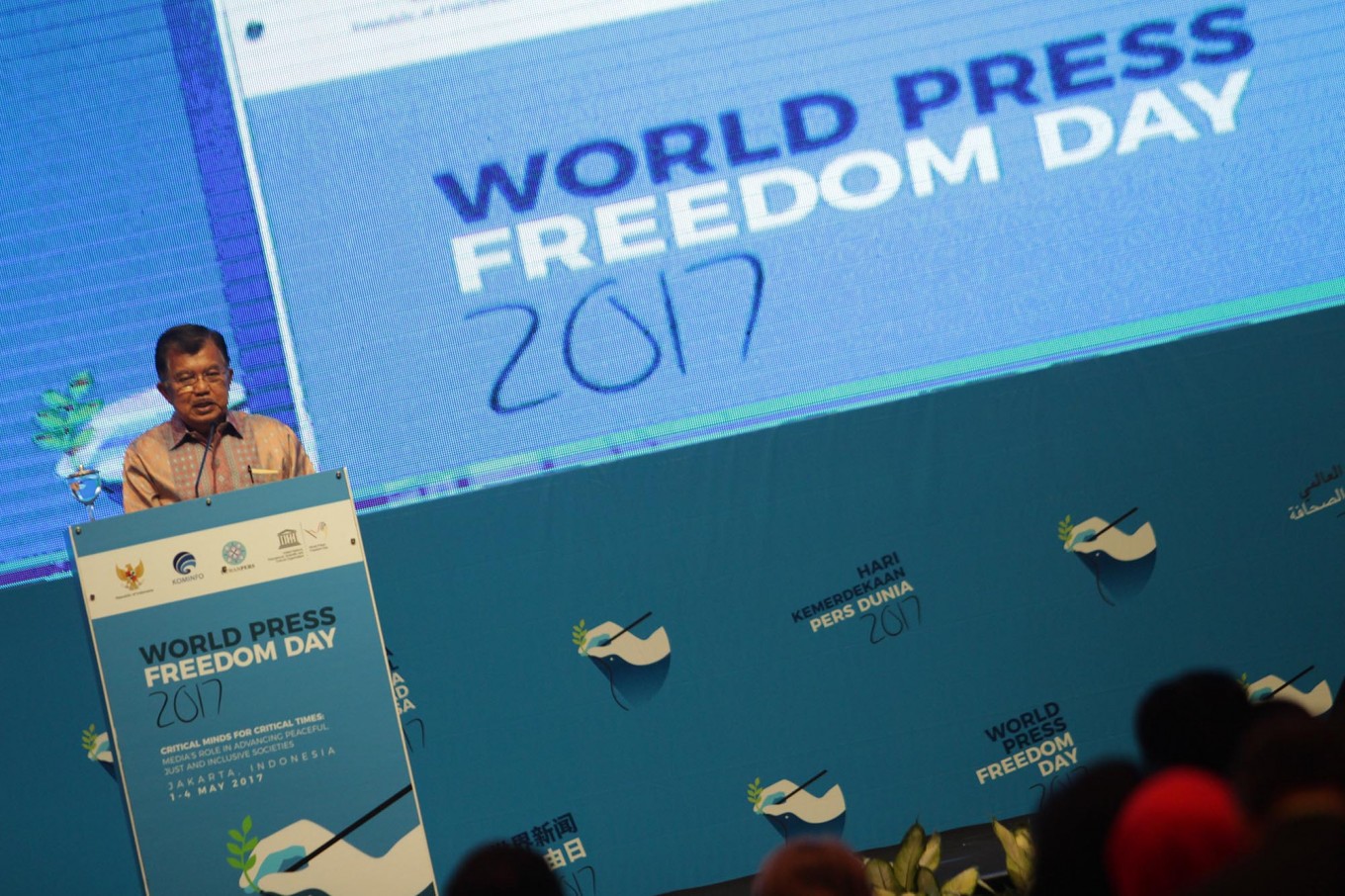All benefit from press freedom: VP
Change Size
 Vice President Jusuf Kalla delivers a speech at the opening ceremony of World Press Freedom Day (WPFD) 2017 in Jakarta on May 3. (JP/Bagas Rahadian)
Vice President Jusuf Kalla delivers a speech at the opening ceremony of World Press Freedom Day (WPFD) 2017 in Jakarta on May 3. (JP/Bagas Rahadian)
I
n a year described by many as a critical time for quality journalism, Indonesia has raised calls for the media to stay objective and use freedom of the press to help advance the country’s development, justice and peace.
Amid boiling sectarian sentiments heated up by the recent highly divisive Jakarta gubernatorial elections, there is no better time for the press, as the fourth pillar of democracy, to be more attentive about protecting its freedom for the sake of inclusiveness in society.
Today’s global challenges brought by technological advancement and the rise of social media that lower the barriers preventing information sharing, but at the same time open the gates for fake news and misinformation, must not hamper journalists from providing critical checks and balances for governments, Vice President Jusuf Kalla said.
“We hope that freedom of the press takes into account an important matter, namely that justice and peace are above freedom of expression. Press freedom without peace will instead create conflict and media would be responsible for that,” he said in his opening remarks for a 2017 World Press Freedom Day event in Jakarta on Wednesday.
“If there are injustices and conflicts, media should play a better role to take sides and clarify the matters to ensure that justice, peace and development of the country continue,” he added.
The Indonesian press has enjoyed relative freedom since the reform era when it was unleashed from the restraints that once tightly controlled the media under the New Order regime. Kalla claimed the government no longer censored or intervened in the media. However, he warned that freedom combined with the rapid development of social media could become negative should media companies not conduct internal censorship.
This year, Indonesia, the world’s third-largest democracy, which has guaranteed press freedom since the enactment of the 1999 Press Law, hosted the 2017 WPFD, co-organized by UNESCO, the Indonesian government and the Press Council.
Held from May 1 to 4, the event, which presented the theme of “Critical Minds for Critical Times: Media’s Role in Advancing Peaceful, Just and Inclusive Societies,” was officially opened on Wednesday.
The event focuses on strengthening the freedom and quality of journalism to advance peace, justice for all and the rule of law, as well as inclusiveness, so that the media can remain strong amid current challenges and threats against the press.
Declining audiences for traditional media, the proliferation of fake news as seen in the coverage of several major political events in the past years and extremism, including violence against journalists, are the latest challenges to the media, UNESCO noted.
Quality journalism combined with critical thinking is important for bolstering freedom of the press and expression that could contribute to inclusion, gender equality and human rights, UNESCO director general Irina Bokova said.
“I believe a free, independent and pluralistic media is essential not only for individual rights, but also for inclusive society, democracy, rule of law, sustainable development and peace,” Bokova said.
(Read also: Violence against journalists remains worrying: AJI)
The media’s role in helping create inclusive societies could be done by portraying exactly what worries citizens, Press Council chairman Yosep Adi Prasetyo said. He added that newsrooms should also have political agendas in terms of seeing the condition of society.
“Media now has a tendency only to follow big news without having a political agenda toward the society’s situation in the future. What I mean by political agenda is not about the practical, but media has to be aware of the context,” he said.









